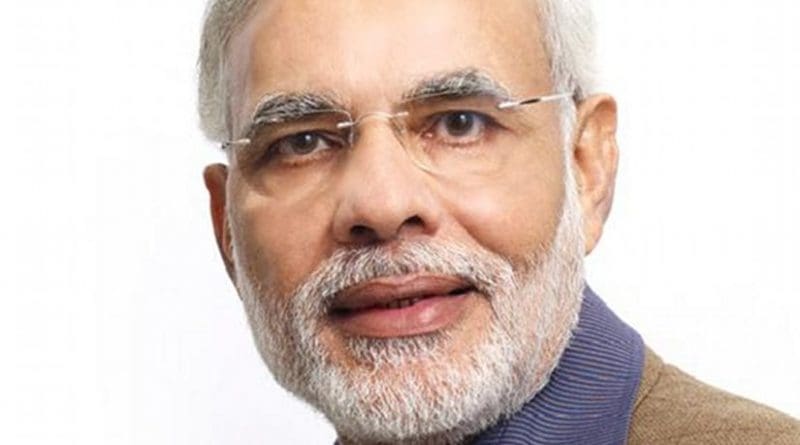Iran’s Precarious Balancing Between India, Pakistan And China – OpEd
After a fifteen year hiatus, India’s Prime Minister Modi is visiting Tehran to bolster economic, security, and cultural ties with Iran, focusing first and foremost on the important transportation link from Iran’s Chahbahar through Afghanistan, a development nervously watched by both China and Pakistan, India’s traditional rivals in the region.
Considered, rightly or wrongly, as an alternative to the China-built Gwadar port in southwestern part of Pakistan, the trilateral Chahbahar project has a definite geostrategic dimension that affects a whole set of regional and geopolitical calculations on a long-term basis. This is a unique case where exaggerated perceptions of an emerging Iran-India-Afghanistan axis at Pakistan’s expense can have deleterious consequences for the future of both Iran and Afghanistan, scene to intense India-Pakistan competition.
Unfortunately, Prime Minister Narendra Modi’s trip to Iran transpires at an uneasy time in India-Pakistan relations, which might be headed for increased rather than decreased tensions, with Delhi and Islamabad trading accusations at each other and failing to resolve their outstanding issues, including Kashmir. Therefore, any improvement in Iran-India relations is bound to be viewed with some suspicion by Pakistan, which has moved pretty close to Saudi Arabia, which has locked horns with Iran with no end in sight. Of course, from India’s perspective, maintaining healthy relations with Saudi Arabia is a top priority for the energy-starving India, which explains the fact that Modi’s Tehran visit was preceded by a recent Riyadh visit; clearly, India is keen on cultivating ties with all the Persian Gulf oil states, instead of sacrificing one for the other.
Although Iran behaves similarly and is keen on maintaining a balanced neighborly relations with both Pakistan and India, unfortunately Pakistan’s bandwagoning with Saudi Arabia and its security spoiler role in Afghanistan do not bode well for a healthy Iran-Pakistan relations. Consequently, it is possible to fathom a tilt toward India in Iran’s foreign behavior, which veers between a tactical and a strategic move, i.e., as a tactical move it propels Islamabad to seek better, and more balanced, relations with Tehran, and as a strategic move shifts the regional tectonics in a way that is not conducive to Pakistan’s regional ambitions.
Needless to say, this spells some trouble for the conduct of Iran’s foreign policy as well, given Iran’s robust relations with China, reflected in the January visit by China’s President Xi Jinping, yielding numerous trade and non-trade agreements worth billions of dollars. Given China’s tendency to count on Pakistan as a counterweight to India, the latter’s strategic cozying up to Iran will likely impact China’s strategic perceptions. As Iran’s largest trade partner, Iran and China have healthy economic relations that somewhat lag behind in the security and strategic realms, which is one reason why China has not echoed Russia’s enthusiasm for Iran’s inclusion in the Shanghai Cooperation Organization, which has inducted Iran as an observer. Certain ambiguities surrounding Iran’s own strategic proclivities, reflected in the “pro-west” orientation of the Rouhani administration, contribute to regional flux in which Iran finds itself today, forced to consider the side-effects of its current warming with India in the new “post-sanctions era,” hailed by Mr. Modi upon arrival in Tehran.
A win-win relationship with both India and Pakistan is, of course, Tehran’s ultimate objective, which is saddled with the uncomfortable reality of competing interests weighing in and, for now at least, creating the impression of a precarious balance, so brittle as not to withstand more than minor shocks.
Without doubt, much depends on the future evolution of India, as a regional superpower eying to extend its maritime reach through Iran and yet, simultaneously, playing subordinate junior partner in US’s game of strategy with China, putting a premium on India’s ability as an autonomous actor, reflected in Delhi’s sheepish obedience to US’s anti-Iran dictates during the past decade, e.g., forfeiting the gas pipeline project through Pakistan partly due to US’s opposition, which can now be heard over India’s plans to build Iran’s offshore gas reserves. But, irrespective of how benign the trilateral transportation link through Chahbahar, there is no doubt that it carries disproportionate geopolitical and even symbolic weight, all the more reason for Iran to work overtime in maintaining healthy relations with the bordering Pakistan, which is capable of considerable mischief given the long and porous borders with Iran. Yet, no matter what the Iranian assurances, the momentum for closer Iran-India relations, particularly with respect to the future of Afghanistan, has the elements of a ‘game-changer’ that has yet to be fully tabulated.

